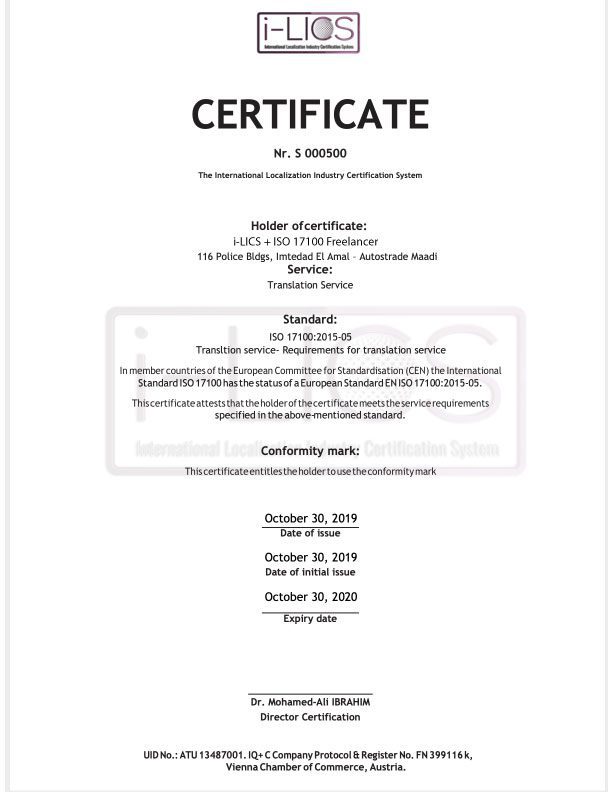ISO 21720:2017 XLIFF (XML Localisation Interchange File Format)
This defines version 2.0 of the XML Localisation Interchange File Format (XLIFF). The
The purpose of this vocabulary is to store localizable data and carry it from one step of the localization process to the other while allowing interoperability between and among tools.
International Certified ISO 21720:2017 XLIFF (XML Localisation Interchange File Format) expert
Be one of the worldwide first internationally recognized ISO 21720:2017 XML Localisation Interchange File Formats Experts and show your specific expertise as an extinguished insider. We offer the certification process for organizations and freelancers.
We are here to provide genuine, professional, and honest answers to any queries or advice to help you create an effective solution for your needs.
About ISO 21720:2017 XLIFF (XML Localisation Interchange File Format)
ISO 21720:2017 is an International Standard that specifies the XML Localisation Interchange File Format (XLIFF). XLIFF is a standardized file format used in the localization industry for exchanging localization-related data between different tools and systems.
Here are some key points about ISO 21720:2017:
- XLIFF Overview: The standard provides an overview of XLIFF, including its purpose, structure, and key components. XLIFF is designed to be a standardized format for storing and exchanging localization data, such as translatable text, formatting information, and metadata.
- Structure and Components: ISO 21720 defines the structure and components of XLIFF files, including elements, attributes, and data types. This ensures consistency and interoperability between different XLIFF-compliant tools and systems.
- Localization Data: The standard specifies the types of localization data that can be included in XLIFF files, such as source text, target text, translation units, segments, notes, and metadata. This allows XLIFF files to capture all the necessary information for localization projects.
- Compatibility and Interoperability: ISO 21720 ensures compatibility and interoperability between different tools and systems that support XLIFF. This allows localization professionals to use a wide range of tools and systems in their localization workflows, knowing that they can exchange data seamlessly using the XLIFF format.
- Extensions: The standard allows for extensions to the XLIFF format to accommodate specific requirements or use cases in the localization industry. This flexibility ensures that XLIFF can adapt to evolving needs and technologies in the localization field.
Overall, ISO 21720:2017 provides a standardized framework for the use of XLIFF in the localization industry. By adhering to this standard, localization professionals, tool developers, and organizations can ensure consistency, compatibility, and interoperability in their localization workflows, ultimately improving efficiency and quality in the localization process.

Complete the course and showcase your success with the International ISO 21720:2017 Certificate.
When choosing an interpretation partner, the client wants to be reassured that they work with a secured Interpretation Service Provider to receive a quality interpretation. With the ISO 21720:2017 Certificate, you increase customer confidence and win more international clients.


